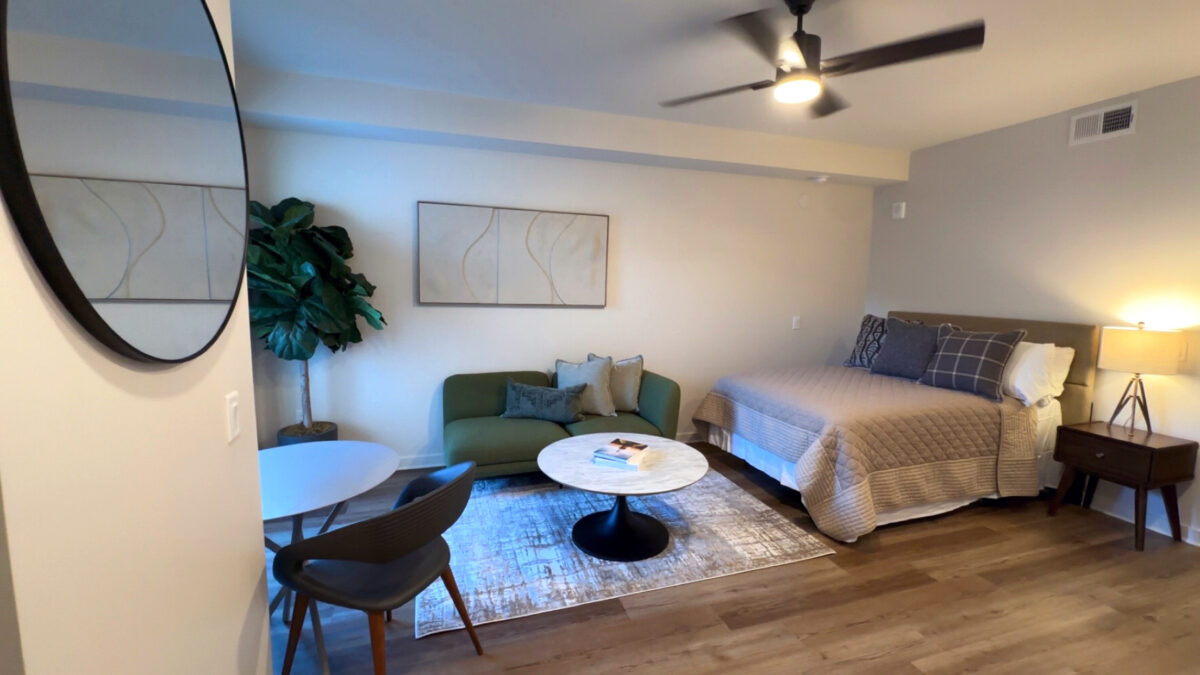In a housing market poised for change in 2020, baby boomers and Generation X are expected to hang on to their homes, while millennials are likely to use their purchasing power to drive demand. According to Realtor.com’s 2020 housing market report, millennial homebuyers are the biggest trend to watch this year. In fact, the report predicts that millennial buyers will account for more than half of the total mortgages opened in spring 2020. This puts millennials on track to outpace both Gen X and boomers, who are expected to account for 32 and 17 percent of total mortgages respectively.
This is big news for the housing market, which previously operated under the assumption that millennials didn’t have the same purchasing power as their generational predecessors. Housing industry experts are discovering that millennials in 2020 are moving away from apartment rentals in urban city centers in favor of owning suburban single-family homes.
The millennial generation, born between 1981 and 1997, is the largest in America. More than 4.5 million millennials are turning 30 in 2020, according to data from Pew Research. And even more importantly, they’re saving and willing to put more money down to get what they want in a home.
As more millennial home buyers enter the market, they’re also reshaping the industry. Millennials are tech-savvy, environmentally conscious and expect top-notch service from their realtors. In order to meet the needs of this emerging market, it’s vital to understand what millennials are looking for in a home in 2020.
Cost-Efficient
While it was normal for baby boomers to buy large homes at a relatively young age, millennials found that the burden of student loan debt has made it difficult to follow in the footsteps of their parents. Until recently, that meant that millennials weren’t buying at all. They were putting off marriage and renting as long as possible.
But millennials in 2020 are looking to buy. They’re willing to purchase smaller homes and aren’t all that interested in using their homes as a status symbol. Instead, they’re striving to make homeownership more affordable and convenient. To a large extent, that means millennials are looking for homes connected to the internet of things (IoT), with optimal energy efficiency and environmentally friendly features.
Smart Home Capable
Millennials already live connected lives. They embrace technology. After all, they’re the first generation that grew up with technology as an integral part of their lives. It makes sense that they would also expect technology to be integrated into their homes. Millennials care about being able to check on their homes, lock their doors, monitor security cameras and respond to alarms even when they’re away from home.
Energy and Resource Efficient
Millennials know that energy-efficient homes are better for the environment and their budget. They are looking to reduce their carbon footprint while also paying less for heating, cooling and other utilities. Some of the top energy-efficient features millennials are looking for include:
- Efficient lighting
- Energy Star-rated appliances
- Efficient insulation rated higher than building codes require
- Renewable energy sources that offset traditional energy consumption
Low Maintenance
There’s a pretty even split between millennial homebuyers who aren’t interested in buying fixer-uppers and those willing to do so to help make the most of their budget. One thing that’s true across the board? Millennials want low-maintenance homes. Sleek appliances, open floor plans, and manageable square footage are features that appeal to millennials in 2020.
While many millennials will consider buying a home that needs work, a report from Nationwide Mortgage reveals that up to 48 percent of millennials would rather buy new construction in order to avoid spending time and money on renovations. It makes sense. After all, millennials are busy, with many of them just starting out in their careers or newly married and starting families. These buyers prefer to purchase new or nearly new homes that come equipped with everything they care about most, including updated bathrooms and kitchens, relatively new appliances and disaster-resistant building materials.
Public Schools and General Location
According to Realtor Magazine, many millennial buyers are looking for homes in safe neighborhoods near good school districts. Other considerations include walkability, length of commute and proximity of family and friends.
- Public vs Private School: Around 43 percent of millennials prefer private education for their children according to the Council for American Private Education. More importantly, millennials in 2020 want educational options for their children.
- Strong Community Presence: The importance of community can’t be understated. Millennials are looking to belong and to impact the community around them.
- Walkability: Closely tied into the importance of community, millennial home buyers are looking to buy homes within walking distance to nearby stores, coffee shops, and parks, making it easier to immerse themselves in their neighborhoods and communities.
Sustainable Design
Although millennials are careful regarding their spending, approximately 73 percent of them are willing to pay more for sustainability in all areas of life, from personal products to homes. This generation is driving the demand for sustainable homes in America and around the globe. What does that mean for the housing market?
Homes Built in a Sustainable Way
Millennials care about environmental issues. They’re concerned about conserving natural resources and lessening their carbon footprint. To that end, they prefer homes built with materials that are also good for the environment. Examples include:
- Locally produced building materials
- Certified sustainably harvested building products
- Construction components made from recycled materials
Natural Light and Thermal Efficiency
Having ample natural light helps heat and illuminate spaces while using minimal electricity, making it an important element in sustainable home design. Millennials want homes with good ventilation and high-quality insulation to boost thermal efficiency and minimize reliance on electricity. In addition to lots of natural light, more than 45 percent of millennials look for homes that produce as much energy as possible from renewable sources.
More than 75 percent of millennial homebuyers are drawn to potential homes based on professional and polished online advertisements. For realtors looking to take their listings up a notch, CORT Furniture Rental can help complete the look with staging designed to let millennials envision themselves in the space.





